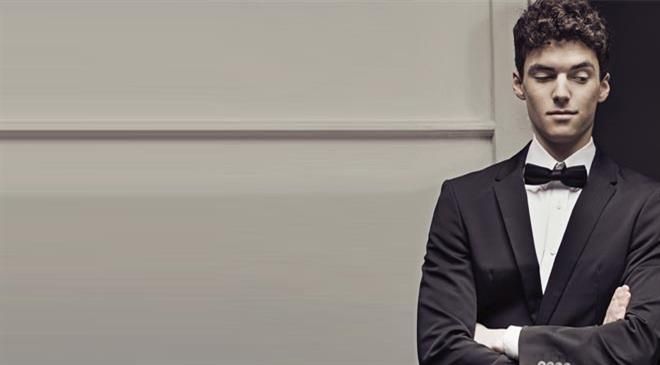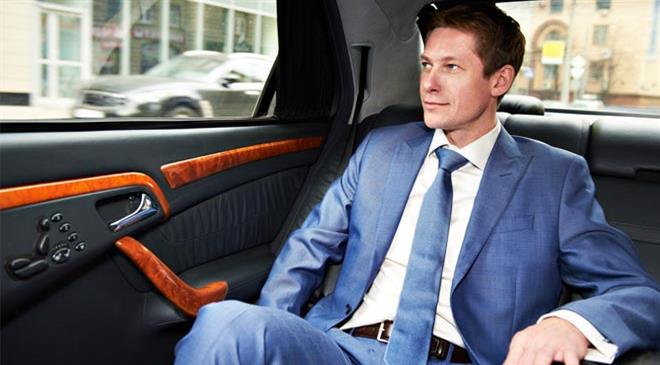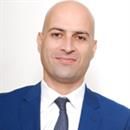Market has become price-sensitive due to online impact
With a legacy of over five decades, Bagir has made its mark as a full-service vendor with end-to-end capabilities in apparel. The innovative tailoring provider based in Kiryat Gat, Israel, develops, manufactures and markets tailored fashion for men and women. In conversation with Fibre2Fashion, Eran Itzhak, the CEO of Bagir talks about the company's growth, services and inventive technologies.
It's been a long journey since 1961. It would be great to know from you how it all started, the five turning points in this category, and of course how Bagir has evolved.
Bagir's business was founded in 1961 and is managed from its headquarters in Kiryat Gat, Israel, where the group's innovation and core product design and development centre is also located. The group's products are sourced from Vietnam, Egypt (JV) and Ethiopia (own factory). In addition, Bagir has sales and customer service offices in New York and London, and has a design hub at its London office.
Always known for its innovation in tailoring, in the 1970s the business became the first non-British based supplier to M&S. Later on, the company developed and launched the machine washable suit which sold successfully in the UK and US, and in 2003 Bagir won the Queen's Award for enterprise in innovation.
The 1990s saw the business move to expand its client base internationally, entering the US market and in doing so, exploring sourcing and production opportunities in China, Egypt and Jordan. This allowed the business to capitalise on factors such as the attractive tax relief on goods made in Egypt or Jordan and sold in the US. In 1999, Bagir established a joint venture in Egypt, located in the duty-free zone of Port Said, focusing on the US market and in 2003, the business established a joint venture in China to manufacture tailored formalwear.
Bagir's eye for innovation continued, with the introduction of the iPod suit in 2006, as well as receiving 2009's Eco Innovation Award from the Israeli ministry of industry, trade and labour for this carbon-friendly suit. In April 2014, the company was floated on the London Stock Exchange (AIM) raising $34 million. Today, Bagir's operations are focused on three production sites with duty-free routes to our target markets and competitive labour costs - Egypt, Vietnam and our future flagship factory in Ethiopia (soon to be wholly owned by Bagir).
Are there any other technologies in the pipeline?
Yes, we always look to innovate and improve our product offering which we are looking forward to presenting but unfortunately, we can't reveal much more at this stage.
What does the term Bagir mean?
In Hebrew, 'Bgadim' means 'garments' and the idea was to create a name that combines 'Bgadim' and 'Israel' - Bagir.
Fit is still a major concern. How do you deal with it?
Fit sample is one of the most critical stages in our process. In order to ensure this is working smoothly, we have implemented the following steps:
- Our PDD department manages the process from the development stage until the bulk order. In this way we keep all our knowledge in one area, this allows us to follow the customer corrections in a professional way, to be able to adjust the pattern correctly, and finally to send a full product file for bulk production (including all necessary technical details/instructions).
- In addition, each factory has a dedicated technical team that inspects the fit sample process, analysing each stage: operations, sewing (measurements), pressing-to ensure samples are meeting the customer requirements as well the quality standard levels.
- To support this, we have just recruited a very experienced global quality manager in Vietnam. One of the team's major tasks is to ensure that all fit samples are reviewed in real time and approved in the first fit session with the customer, shortening the lead time, improving the quality, and delivering a garment that answers the market's needs.
- It is their responsibility to manage the right team in every factory, to use the best technical team to lead the fit sample, as well to make sure that no matter which production site we are using; all the operational procedures are being followed to ensure that production meets our standards, and that the customer can see and feel what we call 'the Bagir fingerprint'.

Which are your major markets? Are you planning to expand to any other markets in the near future?
Our major markets are the US and UK. We have also recently expanded the business into France, South Africa, Mexico and Australia and we plan to use our London marketing and sales office to penetrate further into the new markets in the EU. It is also important to take into consideration the globalisation and online trends which are turning the markets and the industry into a 'borderless' one.
What kind of services does Bagir offer to its clients?
Bagir is a full-service vendor (FSV) with a complete end-to-end range of design, sourcing, manufacturing and delivery capabilities. The production of suits is more complex than many other tailored garments and, as a consequence, retailers often require a wider range of services, such as those from FSVs. Furthermore, the group has a specific quality assurance team which provides a monthly report on the quality level (collated from the feedback of customers) and analyses the cost attributable to maintaining quality at each production site. In recent years, we have leveraged our new production capabilities to significantly develop two additional segments-workwear and ladieswear. In the field of workwear, it is both 'tailored workwear' (supplying airlines and hotels) and 'basic workwear' (supplying scrubs, aprons, etc.). The core of the group's product development and sampling functions are predominantly based in Israel where its pattern-makers and digital grading are also located.
Please tell us in detail about the technologies and innovations developed by Bagir.
We have six concepts which are now 'ready-to-market'.
- City Traveler: The City Traveler suit combines classic tailoring with innovative reflective fabric-weaving. A classic suit during the day is transformed in the evening by its unique ability to reflect the city night light. The suit has been designed with added safety elements to help city men who cycle to keep safe and stay fresh.
- Climate Suit: The Climate Suit was designed for the colder months to keep you warm. The fabric used improves transmitted solar rays through a techno backing layer weaved in the fabric keeping you warmer by 3 degrees. The suit is also lined with a warming lining that traps 20 per cent more heat than standard linings.
- Transit Suit: This suit was designed for the man on the move; therefore, we have designed and developed elements that give comfort and function like smart pockets for phone charger, safety pockets for money, passport pockets, flexible materials, key pockets are lined with RFID blocking material to keep your data secure while in transit.
- 0.755 Suit: Engineered with light fabric and internal components, the 0.755 Suit is named after the total weight of the suit in grams and is significantly lighter compared to a standard suit.
- The Pack Away: Bagir's pattern-cutting techniques and high level of functionality allows the Pack Away to be the leader in functional athleisure tailoring. The combination of a unique folding system and fabric from Solotex allows the entire jacket and trousers to be packed in a convenient travel case or backpack, ready to take anywhere.
- The Shaper Pant: The Shaper Pant visually slims your figure and makes you feel great with smart pattern attributes; the Shaper Pant is constructed to feel and perform like a sports pant but looks tailored.

How many production units do you have? Where are they located? What is your total production capacity?
Egypt: 2,000 tops and 2,200 bottoms per day; Vietnam: 2,200 tops and 2,550 bottoms per day; Ethiopia: 700 trousers per day climbing to 3,200 within 1 year, plus jackets coming into play in H2 2018. In addition, 1,600 items of basic workwear per day.
From where do you source your fabrics and trims?
The group sources fabric from mills based in China, Korea, India and Vietnam. Trims are sourced mainly from China, Vietnam and Israel (to enjoy the duty-free benefits from Egypt to the US).
How do you see this vertical evolving in the next 4-5 years? What will be the impact of IoT, AI and other such technological innovations on this vertical?
Similar to how we see the industry turning 'borderless', we view the coming years as an opportunity to embrace innovation, to improve systems and develop new platforms to allow our customers to place orders how they would like. In addition, there are actions that we, as manufacturers, are taking-one is internal and it is a process of upgrading our IT capabilities and skills to monitor and control production in a much better, efficient and more accurate way. The market has become very price-sensitive in recent years (mainly due to the online impact) and the reality is that every cent counts; so, we believe that by deploying new a ERP system we will be able to cope with the competition and improve our service. Though it is quite a challenge, our plan is to start and implement the new system in Ethiopia which we see as the group's future growth engine.
How has been the performance of the company in the last two fiscals? What are your expectations for the next fiscal?
Overall, 2016 was an important year for Bagir. The company reduced overhead costs across the business by 30 per cent, reorganised production to focus on three manufacturing geographies in several production sites in Egypt, Vietnam and Ethiopia, targeted new clients in the US, the UK, Europe, South Africa and Australia, and generated positive EBITDA of $1.6 million. On the back of these achievements, the company raised $10.3 million in two private placements, the proceeds of which enabled the company to execute agreements with its lenders to clear all bank debt, significantly strengthening our financial position. The company made further investment, as was announced in February 2017, in order to expand capacity in the production site in Ethiopia.
Financial highlights - 2016 vs. 2015
- The company generated revenues of $64.1m for 2016 in line with expectations in the US, the UK and other markets (including Europe, South Africa and Australia). The reduction from the previous year (2015: $75.2m) was mainly attributable to the reduction in sales from M&S and to shifting to sales net of fabric with a US customer;
- We recorded positive EBITDA of $1.6m in 2016-demonstrating the successful execution of the Recovery Plan reversing an EBITDA loss of $(4.3m) in 2015;
- Gross margin increased strongly to 16.4 per cent in 2016 compared with 11.6 per cent in 2015-driven by a mix of cost efficiencies and higher margin sales;
- Reduction of overhead expenses by c.30 per cent compared with 2015;
- The net income in 2016 amounted to $9.9m (including $13.3m financial income from debt write-off, attributed to the clearance of the bank loans), compared with net loss of $11.7m in 2015;
- The cash and cash equivalents at December 31, 2016 amounted to $8.6m (2015: $7.5m).(KD)



